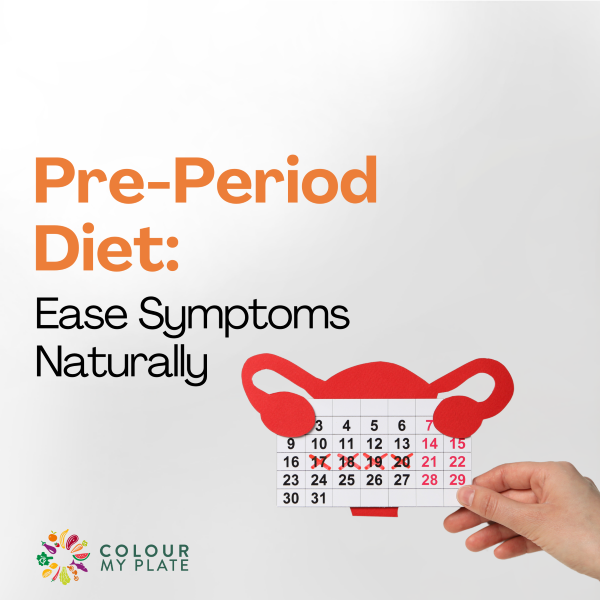
![]() 26 Jul 2024
26 Jul 2024
For many women, the days leading up to their period can bring a range of uncomfortable menstrual symptoms, from muscle cramps to mood swings. However, adjusting your diet during this time can make a significant difference in alleviating these issues and promoting overall well-being. Here’s a comprehensive guide on how to tweak your diet to ease menstrual symptoms and improve your health!
Incorporate lean proteins such as chicken, turkey, tofu, or beans, paired with complex carbohydrates like whole grains (quinoa, brown rice) or sweet potatoes. This combination helps stabilize blood sugar levels and sustain your energy throughout the day.
opt for a variety of colorful fruits and vegetables, particularly leafy greens like spinach and kale. These are rich in vitamins, minerals, and antioxidants that support overall health and combat inflammation.
Include sources of healthy fats such as avocados, nuts (like almonds and walnuts), and seeds (chia, flaxseed). These foods are packed with omega-3 fatty acids, which are known to regulate hormones and reduce inflammation, easing menstrual discomfort.
Calcium-rich foods such as dairy (if tolerated), leafy greens, and fortified plant-based milk can help alleviate muscle cramps. Magnesium-rich foods like nuts, seeds, and dark chocolate also play a role in relaxing muscles and reducing anxiety.
Drink plenty of water throughout the day to stay hydrated, which can help manage bloating and improve overall comfort.
Limit or avoid caffeine, as it can exacerbate anxiety, irritability, and disrupt sleep patterns, making menstrual symptoms worse.
High sodium intake can contribute to bloating and water retention, so it is advised to cut back on salty snacks and processed foods.
These can lead to inflammation and digestive discomfort, so opt for lighter, more easily digestible meals.
Alcohol can disrupt hormone balance and exacerbate mood swings, so it’s best to minimize or avoid it during this time.
While tempting, sugary treats can cause energy crashes and worsen mood swings, so choose whole fruits for sweetness instead.
By making thoughtful adjustments to your diet in the week leading up to your period, you can significantly reduce menstrual symptoms and support your overall health. Focus on nourishing foods that provide essential nutrients, promote hormone balance, and reduce inflammation. Remember, everyone’s body responds differently, so listen to yours and adjust your diet based on what makes you feel best during this time.

We noticed you haven't completed your delivery details.

Your message is sent